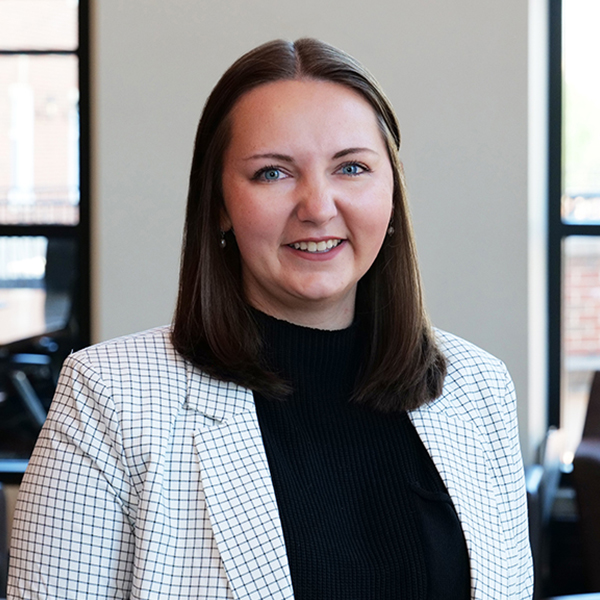Q&A with Claire Leffingwell

In today’s college environment, addressing sexual violence prevention is more critical than ever. Claire Leffingwell is passionate about working with college students, advocating for safer campus environments through education, awareness, and intervention strategies.
As the coordinator of 1 is 2 Many at Oklahoma State University, Claire plays a key part in empowering students to recognize, prevent, and address issues surrounding sexual violence. In this Q&A, Claire shares insights into her work, the value of these Student Affairs support services, and the impact of the 1 is 2 Many efforts on the OSU campus.
Q: What is your role in Student Affairs, and what do you enjoy most about your job?
A: My role in Student Affairs is the Coordinator of 1 is 2 Many within Campus Life. Within my role, I oversee and implement sexual violence prevention and education efforts on campus and support students who have been impacted by sexual violence. My favorite part of my job is getting to empower students through voice, choice, and agency. It's empowering to know that your voice is valued and worthy, and through teaching students how to advocate for themselves, respect others, and build healthy relationships, I get to see students grow in their skills that will serve them well the rest of their lives.
Q: What does making an impact look like in your role?
A: Sometimes, working in an area as sensitive and difficult as sexual violence prevention and response, it's hard to feel like I'm making an impact. Doing both prevention and response, I can see a direct connection between prevention initiatives and reporting—when students know that OSU cares about sexual violence prevention, they are more likely to report. Increased reporting doesn't always mean it's happening more often, it likely means that students feel more comfortable and confident in reporting because they know that support is there for them. I know that I'm making a difference when students go through some of the hardest circumstances in their lives, invite me in to help, and persevere through the pain. Seeing the students I've worked with go on to be student leaders, advocates, or just survive past their traumatic event is how I know I'm making an impact.
Q: Why did you choose to work in Student Affairs?
A: I never had a clear career path forward growing up. I remember, as a kid, playing teacher a lot, then I thought maybe something with child development, then psychology was the degree I pursued in college. None of these felt like where I was meant to be, but I knew I wanted to work with people. My senior year of college, I realized I actually was really sad about the thought of not being on a college campus anymore. Like most student affairs professionals, all it took was a mentor saying "You know you can do this for a job, right?" for me to decide on student affairs. I explored many functional areas, including leadership development, advising/retention, etc. before realizing that a student support related job was the right fit for me. I'm so privileged to work in student affairs doing what I enjoy doing and supporting students in a number of ways.
Q: What do you wish others knew about the resources/programs you work with?
A: The entire 1 is 2 Many program is facilitated by myself, the sole full-time staff member, and a graduate teaching assistant. Since we have a small team, my graduate assistant and I cannot be the only people on campus who care about and contribute to sexual violence prevention. For a true positive culture shift to occur, it will take all of us—staff, faculty, and students—to engage in sexual violence prevention. Contemplate how you may be able to partner with 1 is 2 Many; we are stronger through collaborations. I would encourage others on campus to consider a couple things when reflecting on how you can contribute to sexual violence prevention.
One, sexual violence incidents can have an impact on more than just the victim and the alleged parties. People who support impacted parties, witness or intervene in incidents, and report information shared with them can also be impacted through a ripple effect.
And two, sexual violence transcends demographics like major, class year, or identity—pretending it doesn't exist isn't helpful to our campus or the students you support. Be prepared to respond with compassion and care.
